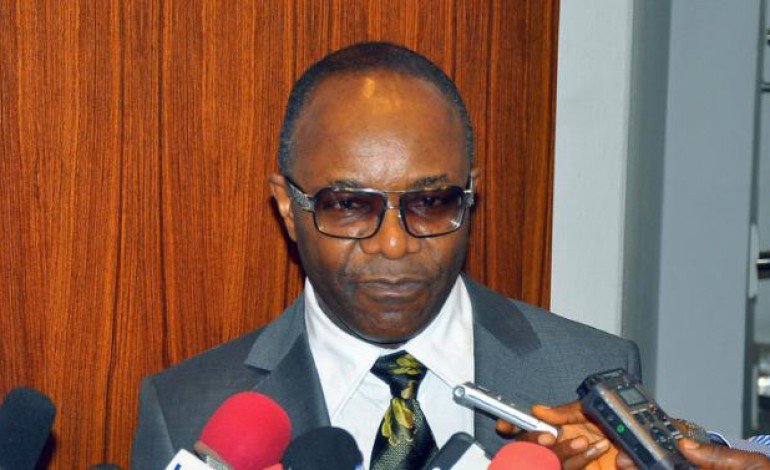Minister of State for Petroleum, Dr Emmanuel Ibe Kachikwu, has denied news reports that the Federal Government was planning to jack up the pump price of petrol, at present fixed at N145 per litre.
Idang Alibi, the Director of Press in the ministry in a statement on Thursday night, clarified the minister’s submission made to the joint committee of the National Assembly on Petroleum Downstream.
“The Ministry of Petroleum Resources would like to categorically state that the Honourable Minister never mentioned nor insinuated the need or plans by the Federal Government to increase the current pump price of Premium Motor Spirit (PMS)”, Alibi said.
Alibi restated what Kachikwu told the hearing, shown live on NTA that the Presidency has set up a special committee to identify the immediate and remote causes of the fuel scarcity with a view to finding both immediate and long lasting solutions to the challenge.
“The Committee has been in rounds of deliberations in the past few days and these discussions are still ongoing. The final decisions and recommendations from the Committee would be passed on to the President and Commander-In-Chief for approval”, said Alibi.
Alibi urged the public and indeed stakeholders in the Oil and Gas sector to disregard any such report of a price increase.
Kachikwu told the public hearing at the National Assembly on Thursday that the Nigerian National Petroleum Corporation, NNPC had incurred a cumulative loss of N85.5 billion in importing petrol and selling at the current retail price of N145 per litre, since October 2017.
Kachikwu said the price was fixed in the first quarter of 2016, when crude oil was selling for $49 and expressed fears that with crude price rising to $67 a barrel, the pump price, may no longer be sustainable.
According to him, the landing cost of PMS which was N133.28 per litre in 2016, is now N171 per litre and this has resulted into stoppage of importation of the product by independent marketers.
This, he said had made the Nigeria National Petroleum Corporation ( NNPC ) to be the 100 per cent importer of the product.
The minister disclosed further that as a result of the N26 difference per litre between the current landing cost of the product ( N171) and pump price of N145, NNPC which had been singularly importing the product at the volume of 25million litres per day since October last year, has been incurring a daily loss of about N800-N900million, cumulatively reaching N85.5billion today, in just three months.
According to him, government has mandated him and a committee set up, to find ways out of the problem until the local refineries become functional in 18 months time.
He said three solutions are being considered.
” One , is for the Central bank of Nigeria ( CBN) to allow the marketers access forex at the rate of N204 to a dollar as against the official rate of N305 to keep the pump price of fuel per litre at N145.
” Two , to give room for modulated deregulation where NNPC would be allowed to continue selling at N145 per litre in all its mega stations across the country while the independent marketers should be allowed to sell at whatever price is profitable to them in all their outlets.
” Three, to look at the direction of blanket subsidy for all the importers in bridging the gap which would be like going back to a problem that had earlier been solved “, he said .
He, however, stressed that the final solution to the problem was for the nation to put her refineries in good shape in a way that 80 per cent of local consumption of the product should be provided for locally.

